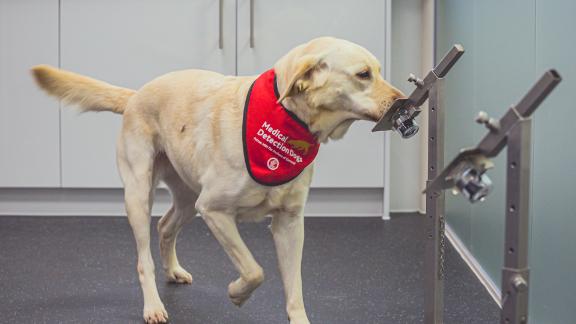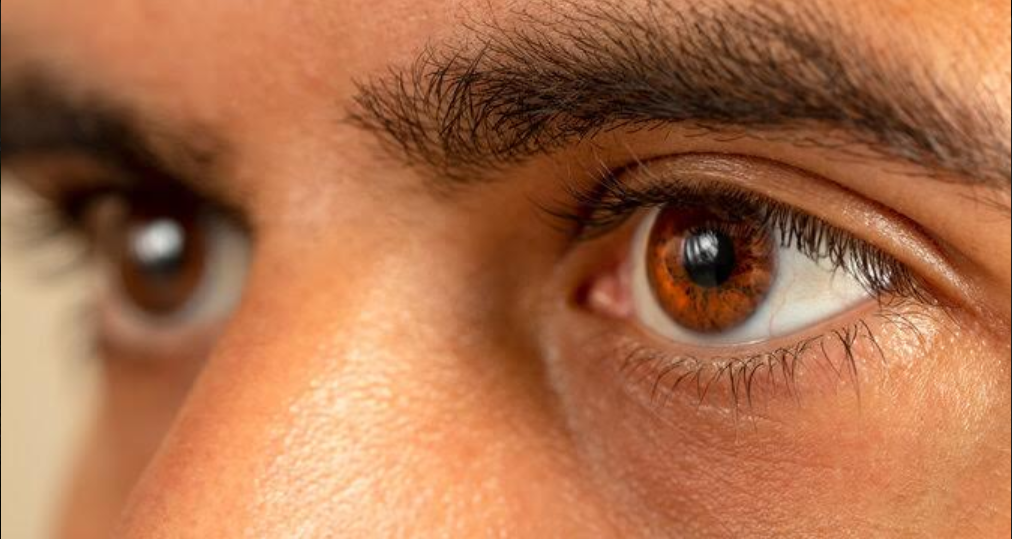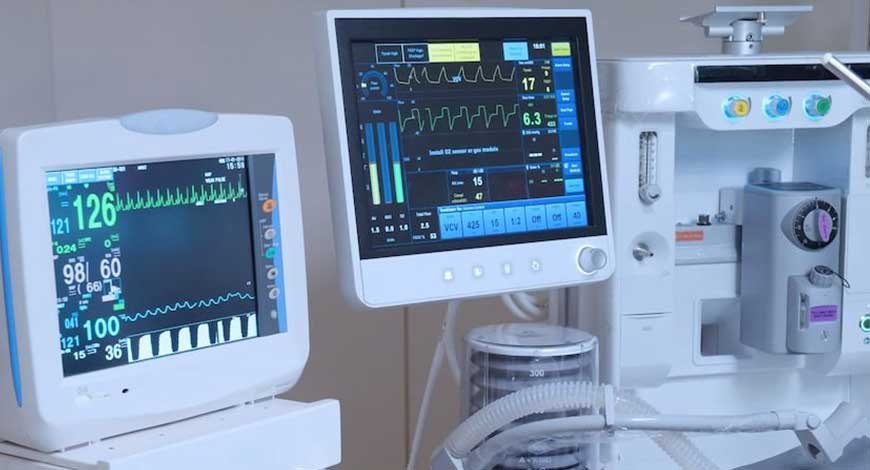A new study published Sunday indicates dogs might be able to lend a helping paw in the fight against Covid-19.
In a collaboration between the London School of Hygiene & Tropical Medicine, Durham University and the group Medical Detection Dogs, scientists completed Phase 1 of a trial examining whether, under controlled conditions, dogs might be able to smell and identify Covid-19 infection.
Six dogs participated in the study, ranging in ages from four to six years old. The group included Labrador, Golden Retriever and Cocker Spaniel breeds. Researchers said the dogs were able to pick up the scent of Covid-19 after six to eight weeks of training.
The early results have been published in a preprint study -- meaning the work has not yet been peer-reviewed or published in a medical journal.
In the Phase 1 trial, working dogs were tasked with detecting Covid-19 on samples of clothing and masks. Researchers examined whether the dogs could distinguish between samples positive and negative for Covid-19.
"The results are extremely exciting," said James Logan, a project lead on the study.
The dogs showed a sensitivity rate of around 82%-94% in detecting Covid-19. Chemical analysis of the infection showed a "distinct" odor associated with Covid-19. Researchers are in the process of identifying the exact chemicals behind this odor.
"Dogs could detect Covid with incredible speed and accuracy," Logan said -- "even if a person was asymptomatic."
The specificity rate, which measured the ability of the dogs to indicate whether someone did not have Covid-19, ranged from around 76% to 92%.
Study authors say a PCR test is still the "gold standard" for detecting Covid-19, but suggest dogs could provide a quicker and easier way to screen for Covid-19 in high-volume traffic areas. The dogs could also dissuade people from going to high-contact spaces while infected.

 Dogs are being trained for detecting Covid in UK
Dogs are being trained for detecting Covid in UK









.png)










.jpeg)






.jpg)



.jpg)





.jpeg)
